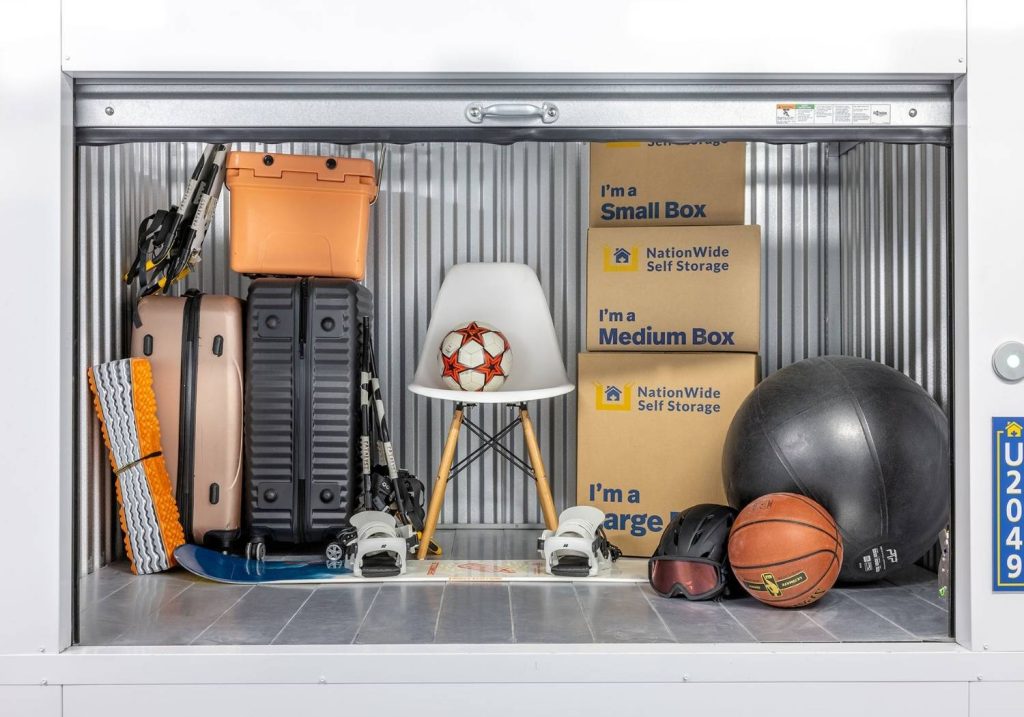October 11, 2023 | 4 minute read
Can You Deduct Storage Unit Costs on Your Taxes?
Canadians are always eager to explore potential deductions and credits to minimize their tax burden. One question that often arises is whether you can write off the cost of a storage unit on your taxes. Self-storage units have become increasingly popular, offering additional space for individuals and businesses. In this blog post, we will delve into the circumstances under which you may be eligible to deduct storage unit expenses on your Canadian tax return.

Business Use of Storage Units
If you’re a business owner or self-employed in Vancouver or BC, you might be able to deduct the expenses associated with a storage unit as a legitimate business cost. However, specific criteria must be met to qualify for this deduction:
- Inventory Storage: If you use a storage unit for storing business inventory, supplies, or equipment, you can typically deduct the cost of the storage unit as a business expense. This includes items like tools, merchandise, or materials required for your business operations.
- Document Storage: Storing business-related documents and records, such as invoices, tax records, or client files, in a storage unit can qualify as a deductible business expense. Proper record-keeping is essential for Canadian tax compliance, and the cost of maintaining a storage unit for this purpose is recognized by the Canada Revenue Agency (CRA).
- Equipment Storage: Some businesses require specialized equipment or machinery that may not fit within their primary workspace. If you store such equipment in a storage unit, the rental cost can often be written off as a business expense.
It’s essential to maintain meticulous records and keep receipts for your storage unit expenses to substantiate your claim in case of an audit. Additionally, it’s advisable to consult a tax professional or accountant to ensure you are taking advantage of all applicable deductions and meeting CRA requirements.
Moving Expenses and Storage Units
If you’ve relocated for work or have recently moved due to a change in your job location within Canada, you may be eligible to deduct certain moving expenses, including storage unit costs. However, specific conditions must be met to qualify for this deduction:
- Distance Test: Your new job location must be at least 40 km farther from your former residence than your old job location was from your former residence.
- Time Test: You must work full-time for at least 39 weeks during the 12-month period following your move. For self-employed individuals, this means you must work full-time for a total of 78 weeks during the 24-month period following your move.
- Storage Expenses: If you use a storage unit to store your belongings during your move, the cost of storage is considered a deductible moving expense. This includes the rental cost of the unit and related transportation and insurance expenses.
Keep in mind that tax laws can change, so it’s advisable to consult the most recent CRA guidelines or seek professional tax advice when considering moving expenses as deductions.
Personal Use of Storage Units
For personal use of storage units, such as decluttering your home, storing seasonal items, or holding onto belongings during a transition, expenses are generally not tax-deductible in Canada. The CRA typically considers these expenses as non-deductible personal costs.
However, there may be exceptions in cases of hardship or emergencies, such as natural disasters like fires and floods. In certain instances, expenses related to disaster-related storage may be eligible for deductions, but this typically requires special provisions and documentation.
Conclusion
While it’s possible to deduct self-storage unit costs on your taxes under specific circumstances, such as when used for business purposes or as part of qualified moving expenses, personal use of storage units does not typically qualify for tax deductions. To ensure compliance with Canadian tax laws and maximize available deductions, consult with a tax professional or accountant who can provide personalized advice based on your unique situation.
Remember that tax regulations can change over time, so staying informed and seeking professional guidance is crucial to optimize your tax benefits while staying within legal boundaries. Proper record-keeping and documentation of expenses related to your self-storage unit can also help support your claims in case of a CRA audit.
If you are considering a self-storage unit near you, contact us at NationWide Self-Storage to learn about the various unit sizes we have available and our rates. We would love to help meet your storage needs.
Popular Posts
-
Make the Most of Summer By Using Self-Storage
How and why renting a self-storage unit can help you enjoy a more organized, stress-free summer. It’s a smart way to simplify your life, reduce stress, and make room for what matters most during the summer season.
Read More -
Why Self-Storage is a Smart Move in Vancouver’s Fast-Paced Housing Market
With soaring housing costs and sky high rental prices, self-storage in Vancouver is not just a convenience, but as a smart solution to reclaim space, reduce stress, and stay organized.
Read More



